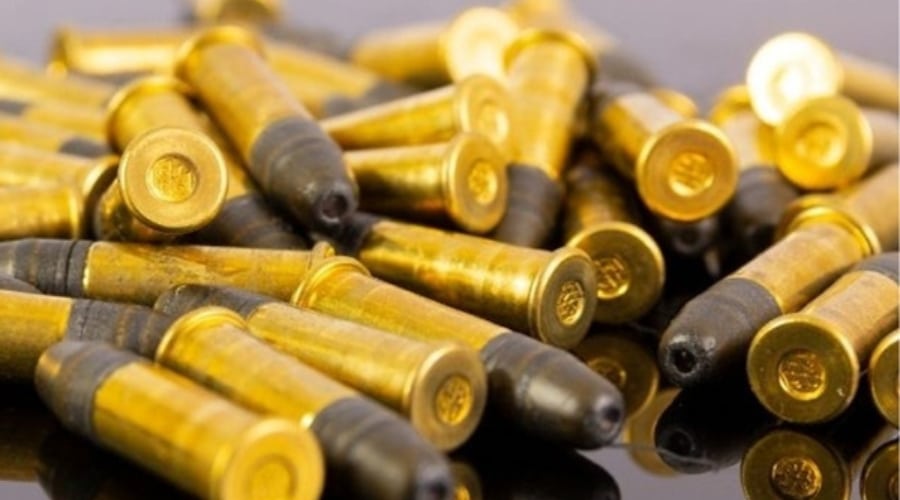
BASC statement on lead ammunition restriction proposals
Read our statement in response to publication of restriction proposals on the outdoor use of lead ammunition in England, Scotland and Wales.
Get information on the legal shooting season for mammals and birds in the UK.
Learn about our current conservation projects and how you can get involved.
Comprehensive information and advice from our specialist firearms team.
Everything you need to know about shotgun, rifle and airgun ammunition.
Find our up-to-date information, advice and links to government resources.
Everything you need to know on firearms law and licensing.
All the latest news and advice on general licences and how they affect you.

A newly published study in Conservation Evidence purports to show the voluntary transition away from lead shot for live quarry shooting to be in stagnation, despite evidence of progress on the ground.
BASC’s response to the study is clear: this is not an overnight change. We are still only two years into a five-year transition period, and the transition away from lead shot is happening but requires both time and support.
The study claims 99.5% of the 215 pheasants from which shotgun pellets were recovered had been killed using lead ammunition. While the study findings are clear, they do not show the growing desire and requirement on the ground to move away from lead shot.
We know, as a result of the National Game Dealers Association’s push to supply consumers with lead-free products by the end of 2022, that 65% of the country’s shoots aim to be lead free by the end of 2023, with another 20% phasing lead shot out by the end of 2025. This is clear progress and should be supported.
The innovation shown by ammunition manufacturers over the past 24 months has been outstanding, even when facing an uphill battle amid the Covid pandemic. Exciting alternatives to lead shot are continually coming to the market to great acclaim. The development of a range of biodegradable wads has opened the door to a new stream of products.
BASC alone are reaching out to 1,000 people a year through our practical Sustainable Ammunition Days. We have sent a ‘Moving away from lead shot’ leaflet out to all of our 150,000 members. We have discussed the transition on over 400 shoot visits, and our messaging has been clear and concise in our membership magazine and in the press. Taken alongside the efforts of the other organisations and businesses, there is ample evidence of a working transition. This progress is even more exceptional given the two years of restrictions we have faced as a result of the Covid pandemic.
The study does recognise the significant work that is being undertaken. The authors talk of the “considerable efforts in education, awareness-raising and promotion”, but their conclusion is overly hasty. The study’s restricted sample size means little when considered alongside the bigger picture of effectively and efficiently transitioning away from lead shot for live quarry shooting.
With Covid interrupting two years of shooting, it is no surprise that people are still using up old stock. That does not mean they are not preparing themselves.
It cannot be said too many times, this is a voluntary transition to ensure the shooting community are as prepared as possible for future restrictions. Rush it, and the consequences for jobs and the rural economy could be significant.

Read our statement in response to publication of restriction proposals on the outdoor use of lead ammunition in England, Scotland and Wales.

FACE has launched a European Hunters’ Campaign and needs your help to fight ill-conceived policy decisions.

The Health and Safety Executive has extended its lead ammunition restriction process by six months to assess all 2,759 consultation responses.
Sign up to our weekly newsletter and get all the latest updates straight to your inbox.
© 2023 British Association for Shooting and Conservation. Registered Office: Marford Mill, Rossett, Wrexham, LL12 0HL – Registered Society No: 28488R. BASC is a trading name of the British Association for Shooting and Conservation Limited which is authorised and regulated by the Financial Conduct Authority (FCA) under firm reference number 311937.
If you have any questions or complaints about your BASC membership insurance cover, please email us. More information about resolving complaints can be found on the FCA website or on the EU ODR platform.
This website uses cookies so that we can provide you with the best user experience possible. Cookie information is stored in your browser and performs functions such as recognising you when you return to our website and helping our team to understand which sections of the website you find most interesting and useful.
Strictly Necessary Cookie should be enabled at all times so that we can save your preferences for cookie settings.
If you disable this cookie, we will not be able to save your preferences. This means that every time you visit this website you will need to enable or disable cookies again.
This website uses Google Analytics to collect anonymous information such as the number of visitors to the site, and the most popular pages.
Keeping this cookie enabled helps us to improve our website.
Please enable Strictly Necessary Cookies first so that we can save your preferences!
More information about our Cookie Policy